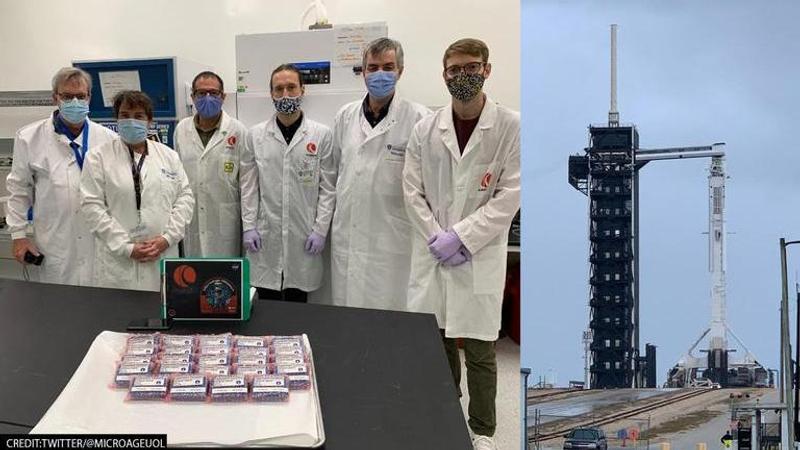Published 17:35 IST, December 21st 2021
Human muscle cells set to be deployed into space to uncover ageing phenomenon: Reports
The project will be launched from Florida's Kennedy Space Center to the International Space Station (ISS) aboard a SpaceX Falcon 9 rocket.

Advertisement
MicroAge, a research project, can now help people live longer and healthier lives. Human muscle cells are set to be launched into orbit as part of this project which will aid in comprehending what happens to human muscle cells and why they weaken with age. On Tuesday, the study, undertaken by UK researchers from the University of Liverpool, will be launched from Florida's Kennedy Space Center to the International Space Station (ISS) aboard a SpaceX Falcon 9 rocket.
According to a report by Sky News, human muscle cells the size of a grain of rice were produced in labs and placed in small 3D-printed holders. They will be electrically stimulated in space to cause tissue contraction. Spending time in space without the effects of gravity can make astronauts' muscles weaker, similar to how they do as they become older before they recover when they return to Earth.
Team @MicroAgeUoL have completed handover of our muscle constructs to NASA after a gruelling and eventful 12 hour integration day. Excited for the launch on Tuesday 🚀🤞. Sam, Kay and Shah were awesome. Watch this space! @LivuniILCaMS @LivUni @spacegovuk @livunieng @livuniHLS pic.twitter.com/sNvo1NNIK8
— MicroAge UoL (@MicroAgeUoL) December 20, 2021
Once the samples return to Earth in January 2022, researchers from the University of Liverpool will examine and compare them with results from experiments on Earth. They believe that by doing so, they will be able to figure out why muscles weaken with age and how to prevent it. "For a long time, we have known that astronauts in space lose muscle quickly. People have pondered whether this is a case of accelerated ageing. We recently discovered that astronauts on Space Station face a similar difficulty," Professor Malcolm Jackson, from the University of Liverpool, was quoted as saying by Sky News.
UK Space Agency provided £1.2m in funding for the project
Despite exercising for at least 2.5 hours every day, astronauts lose a substantial amount of muscle and find it difficult to walk for a while once they return to earth, Jackson added. The 24 muscle cell containers will also accompany mission patches designed by children as part of a competition organised by the University of Liverpool. The University of Liverpool has received £1.2 million in funding from the UK Space Agency for the project, the news outlet reported.
Image: Twitter/@MicroAgeUoL
Updated 17:35 IST, December 21st 2021



